https://www.goodreads.com/book/show/13055034-otma-82-the-first-day
Click on the link & scroll down for the giveaway–“win a copy of this book”-10 paperback books available!
New Book "OTMA 82 – The First Day Out Now
https://www.goodreads.com/book/show/13055034-otma-82-the-first-day
Click on the link & scroll down for the giveaway–“win a copy of this book”-10 paperback books available!

A recent headline—A Ninth Planet May Exist Beyond Pluto, Scientists Report—rekindled my thinking about a possible scientific basis for the afterlife. Given how little we currently know about the universe and how stars, planets and galaxies form or how life comes to be on planets like Earth, is there nevertheless a scientific case to be made?
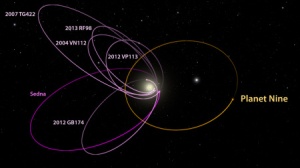
My starting point is the human brain—that marvelous, near inexplicable device or system we exist within from birth to death—and how the human brain cannot possibly accomplish all that we know it does without it being somehow connected in unobserved ways to many other things and perhaps other entities. Neither science nor medicine has yet to come up with a factual basis for human consciousness, but we can say that there must be an underlying science to not only how the human brain really works and what it is connected to outside of our human form, but also how consciousness occurs and is maintained, apparently automatically. Automatically! That’s the point—we are conscious automatically; therefore, there must be a system in place that science hasn’t yet discovered that makes that happen in and for all of us.
The other idea we might agree on is that if there is an afterlife that we will experience individually, then there must be a brain structure available to each of us in that afterlife that will permit consciousness to resume for each of us. Certainly, I prefer the idea that we get a much better brain to work with there than we have here.
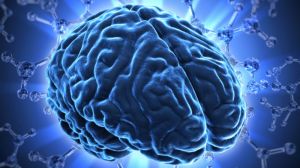
The next question is how our consciousness gets from here, Earth, to there, the place where we regain consciousness after death. Let’s assume that ‘there’ is some other planet. Many of us believe that we get to wake up perhaps just a few days after we die on Earth, which, if true, suggests that the next world we regain consciousness on can’t be ridiculously far away. Some reliable mechanism must exist to transport all of our essential personality, memory and consciousness components after we die. Now, if indeed there is a large, unseen and undiscovered planet well beyond where Pluto is (and the scientists estimate that it may be as much as 10 times the size of Earth, and following a path that takes it from 20 billion to 100 billion miles away from us), wouldn’t that be a very logical candidate for the next world for us all?
We all dream of space travel, visiting other planets, meeting other beings. But we already know that the human body cannot be transported any faster than the speed of light, which means that it would take something like 1,200-6,000 days (3-16 years) to get us to this possible outer world (that some are already calling ‘Planet 9’ until we get more data and it gets a name) even at that speed. We also know that the human body cannot survive for long in space travel as we know it now, and our muscles and bones start to deteriorate within days after we are placed in a minimal gravity or weightless environment. We are physically built for life on Earth and nowhere else, it seems, but we are plainly able to imagine so much more, including life on other worlds and an afterlife.

Perhaps we become space travelers only in the afterlife—when we have been transported elsewhere and been given new bodies and brains—and not before. Perhaps the universe is intentionally structured in such a way that celestial powers essentially control space travel, by transporting us (our individual personality, memory and consciousness components) through the cosmos and by giving us new bodies and brains at whatever intervals, and if that were the true picture, then at some point science will start to discover evidence of it. After all, what is a planet 10 times the size of Earth possibly doing so far away from our solar system, yet evidently still part of it? How did it wind up there? This may just be the first discovery of many that will completely challenge not only scientists, but all of us.
Serge Jusyp is author of OTMA 82—The First Day: Trial and Resurrection, a novel (Website, https://sergejusyp.wordpress.com/; Facebook, https://www.facebook.com/sergejusyp/; Twitter, @Jusyp; email, sjusyp@yahoo.com)

None of us knows what rules or law will be applied to us and others in any afterlife, just as none of us knows what part of our skills and knowledge might be at all useful to us there. How then should we imagine or comprehend what might be the applicable rules after our death and our reawakening thereafter, wherever that may be?

Let’s look first at children who have died, and by children I mean those 15 or so and younger. Most everyone I’ve ever talked to about this believes that kids get a free pass—they wake up in the afterlife as kids, with a clean record, and are given a chance to mature. So that’s the first law that I imagine being applied after we die. But what about kids who have, say, committed murder here on Earth? Since the celestial authorities will have a complete set of both the facts and motivations to review, how could they not come to a fair assessment, which many people believe would be guided by mercy and forgiveness? It might only be in those rare cases when the child literally cannot be rehabilitated, even there, that something less than a free pass is given.
This takes me to what I assume is a second fundamental afterlife law—if you both can and want to be rehabilitated, you get at least one fair chance to continue there in some fashion. Yes, I believe that anyone even marginally salvageable gets a second chance, if they want it.

My third assumption about the afterlife legal system is that how we died, even if by suicide, is irrelevant. If one believes that the celestial authorities get to review absolutely everything about our lives and motives, then surely how we died is completely unimportant to that analysis.
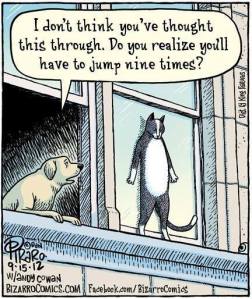
Next, given that we have been resurrected, is time going to matter (or even exist) for us? My theory is that we will be given as much time to do things there as we need, but we will never be allowed to procrastinate. Hey, if you’re serious about being in rehab, then do it! If you’re not, then surely putting things off is pointless. I also suggest that time will continue to exist for us, at least up to the instant of someone becoming a perfected being in the afterlife. Once you are perfect, the question of time must change. Nothing more to be learned that requires time! As always, I’d be delighted to hear your thoughts and ideas about any of this.

|

In OTMA 82—The First Day: Trial and Resurrection, the resurrected teacher, George Harvey, is put on trial on his first day in the afterlife. Most of us have some theory of how we and others may be held to account in the afterlife for our mistakes while we were alive on Earth, and in my novel, I put my own theory into words.
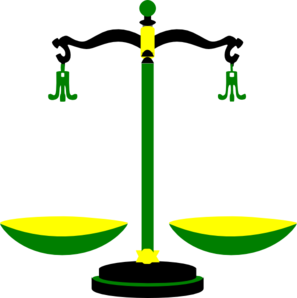
What would be the point of being put on trial after death? In my view, there are a number of good reasons to suppose that some sort of trial of each of us takes place there. Each of us has to come to terms with the worst thing we have ever done to another human being, our lowest point in our adult lives, whatever that may have been. Even if such awful behavior took place decades earlier, it makes sense to me to have our resurrected conscious selves have to deal with it.
Most of us are in favour of forgiveness, but most of us have a hard time either offering to forgive others or accepting forgiveness from others. I believe that an afterlife trial, focusing us on exactly that lowest point of our adult lives, is one of the best ways to put into the past once and for all, not just that one human mistake, but all of our mistakes. That worst mistake will subsume within it all of our other errors, and there will be no need to go over any others. A trial will also allow the celestial powers to reveal to us our real motives, what led us to screw up.
Since we will be told when we are tried that this was indeed our low point, we will realize that this is the minimum level of forgiveness necessary for us to receive and to give to others for everything. From the moment of such a realization, forgiveness is bound to become an incredibly positive behavior, a liberating exercise of the human spirit.

Are all people going to be let off the hook in this forgiving afterlife? I doubt it, and expect that some put on trial will not be allowed to continue on in the afterlife, that there will be no value in doing so. It will be up to the celestial powers to judge this in a truly objective way that we can’t imagine from our lives on Earth. There will be justice, more so there than down here on Earth.
I would be delighted if you were to share your own theory with me—I don’t claim any personal or inside knowledge about these things!

Have you wondered where some form of life might exist within our own solar system?
Over the past year or two the case for Jupiter’s moon, Ganymede, has kept getting better. Let’s start with basics: Ganymede is larger than both Mercury and Pluto, and is 2/3 the size of Mars with a diameter of 5,268 km or 3,273 miles–8% larger than Mercury. It has the highest mass of all planetary moons and has more than twice the mass of Earth’s Moon. Gravity is about 15% of Earth’s; it has huge subsurface (salty) oceans, a magnetic field and aurora—yes, like our Northern Lights. Ganymede has a core of metallic iron, followed by at least one layer of rock, the subsurface oceans topped off by a thick crust of mostly ice. There is almost no atmosphere, and what traces exist appear to be ozone! Any life on the surface would have to be able to exist in deep cold with no air to breathe, and some electrically-charged oxygen molecules (ozone) floating just over the surface. But we all know life can exist in oceans, even without much light…so?
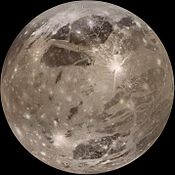
It was the shift in Ganymede’s aurora which helped to prove the salt water oceans part this year: https://www.sciencenews.org/article/aurora-shift-confirms-ganymede%E2%80%99s-ocean
The salt water part is the neatest—I wondered how the heck all that water got on Ganymede, and where did the salt come from? The oceans may very well be in layers, one ocean on top of another, separated by rock and ice. Yes, a subsurface club sandwich of oceans! In short, a science fiction writer’s dream world, not that far away, and very real. Would I like to write a science fiction story about intelligent life in the oceans of Ganymede? No comment!
Finally, check this out: http://www.jpl.nasa.gov/news/news.php?release=2014-138

Have you ever considered how time will be experienced in life after death and whether it will be much different than time as we know it in our Earthly lives? For starters, when we wake up in the afterlife, we won’t know exactly how much Earthly time has passed since our demise. We won’t have any idea, initially, how time is either to be reckoned or to be experienced, and how different it might be than on Earth.
For my novel I started with some ideas that made sense to me. The first is that the very early stages of awakening in the afterlife will be characterized by our own confusion. Secondly, once the reality of having survived death sinks in, we will start to perceive and experience time differently. Thirdly, I assumed that one day in the afterlife is likely going to correspond to much more than one day on Earth. There is no logical reason to assume that it would be the same, and I found it hard to see any value in having one day there equal much less than one day here. Human beings are totally used to the concept of a day—morning, noon and night—and I believe that the celestial powers will use that familiarity to start us off with a time setting or framework that makes some sense to us—a “day”, but on another world.
Will days there seem long? Especially on the first day when we will be grappling with so many things at once, I believe that time will seem to rocket along. Beyond that, I include a few clues in the novel as to how time becomes different for us, and generally invite readers to start drawing their own conclusions. Will we ever be able to put things off there—to procrastinate? I strongly doubt it. All activities and actions there must be directed towards our spiritual progress. By all means let me know if you think otherwise!

Have you ever wondered how, assuming you believe in life after death, we will not only know who we are when we wake up, but remember all kinds of things about our Earthly existence? For my novel, I discarded any literal notion of our Earthly bodies somehow being reassembled—if the celestial powers that resurrect us have the science to transport our personality and everything unique about us to another part of the universe, then they surely have the science to provide us with new functioning bodies and brains. Moreover, our bodies are composed of mainly perishable materials, and what would be the point of trying to transport such materials across space?
The second part, the science to transport our personality and everything unique about us to another part of the universe with complete accuracy, is much more difficult to work out and imagine. It seems to me there are three different elements to each of us that have to be accounted for and transported. The first is our personality with all of its unique features and aspects. The second is our memory of our Earthly life and the things that were important enough to lodge in memory while we were here. The third is our consciousness—what do I mean by that? It is a reflection of our overall progress, and another way of thinking about this is to say that consciousness is equivalent to our spiritual progress at any given moment.
Our consciousness here on Earth is already very difficult for any of us to define, let alone measure or analyze in any logical or scientific way. Consciousness is a moving target, in that your consciousness a year ago is different than it is this second, and will be different years from now, etc. We can progress backwards in life, not just forward. And, we cannot possibly be objective about our own level of consciousness or spiritual progress or try to judge what it might be for others. For my novel, I assumed that our consciousness at the instant of (brain) death is the consciousness that is “saved to disk” by the celestial powers, and then transported and copied over into the matrices of our new brain when we are resurrected.
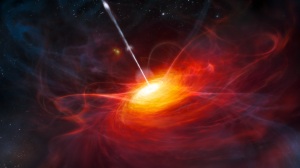
To continue the analogy to today’s computers, I think of our unique personality as the operating system for our brains, and it, too, can be saved and copied from our current brain when we die to our new brain in the afterlife. Like computer memory, I believe that human memory can be stored, copied and reproduced—we just don’t have any science to even suggest how that might be possible. But think it through—if we remember who we are when we awaken in the afterlife, then there had to have been copies of everything, well everything important, made and transported over to the transition world we awaken on, of our personality, memory and consciousness.
Our new bodies must be capable enough and sturdy enough to allow us to participate in activities on the transition world. I also believe that we get an upgrade from our very basic cell phone-brain here on Earth to an amazingly capable smart phone-brain on the transition worlds. If the overarching goal of a transitional existence is spiritual progress, the celestial powers will certainly not want us to go backwards in any sense whatsoever!

My journey began some years ago, when I had the sudden realization that our human brains are definitely connected to things we can’t define, see or measure, and that there is an underlying science to the universe, science that is so far beyond us that it will likely take mankind millions of years to discover all of it, if we even get that far. Secondly, I was always interested in the views of family, friends and their children on the subject of whether there is an afterlife. Most often, beyond a common shrug of the shoulders, people were flummoxed by the literal concepts of what they thought conventional religion (of almost any of the main types) urged one to believe and accept as truth. As one of my oldest friends put it, “How can they ask me to believe in something called the Holy Ghost? I don’t believe in any kind of ghosts.”
Having been a trial lawyer for many years, I already well knew that truth was incredibly valuable, but terribly elusive, and most of the time, quite tenuous in the minds of human beings. I had to admit—although I was very reluctant to—that the position of the agnostic in particular is hard to criticize. How can we know even a small amount of truth about whether there is an afterlife until after we ourselves die?
To my mind, the most glaring gap or contradiction in most conventional religions is the complete absence of any rational explanation or even discourse on what actually happens to us—our personality, that which makes us ‘us’—from the moment of earthly death to perfection in a heaven or other blissful place. After I die, I know that even if they were to attach wings to me, I still wouldn’t know anything more than I did or be any better of a person than while I was alive, with one exception, and it’s the exception that was the final bit of inspiration I needed to begin writing my novel. After we die, assuming our existence continues somewhere else, the one thing we can be sure of is that we will then have the consciousness of having survived death, of waking up, still being alive, wherever it may be.
Taking that basic idea—the consciousness of having survived death—I decided to explore, in my novel, how the earliest stage of life after death might be, from the moment of waking up from death through to the end of a first day on some other world. OTMA 82 is my fictional transition world, and my narrator, a retired teacher, is the guide. Readers who join me on this exploration will find—I hope and believe—some additional bits of truth about what they themselves really think is going to happen to them after death, together with some entertaining notions about what a transition world and a new body might be like.
How would you react to the sudden realization of where death might actually lead? At fifty-nine, George Harvey, a retired teacher, makes just this discovery-and his life changes in ways he could never have imagined. George finds himself propelled on a headlong journey to another world, where he searches for the truth. Though they are strangers at first, George joins forces with a single mother and two young men, each seeking their own truth. With no easy answers, George, Luba, Philip, and Alyosha experience what seems impossible. Now they must decide if what they have learned is not just real-but inevitable. Each answer inspires more questions, and these four apparent survivors of death must now decide for themselves: When does life really end? Can broken lives ever be reconnected and restored? How dangerous are our beliefs and our faith? Are we destined to be put on trial at some time and place in the cosmos? Can our darkest fears ever be overcome or our most cherished dreams realized? Is there only one path after death? What does time really mean? Their search for truth challenges everything they once believed about life, death-and what may follow.